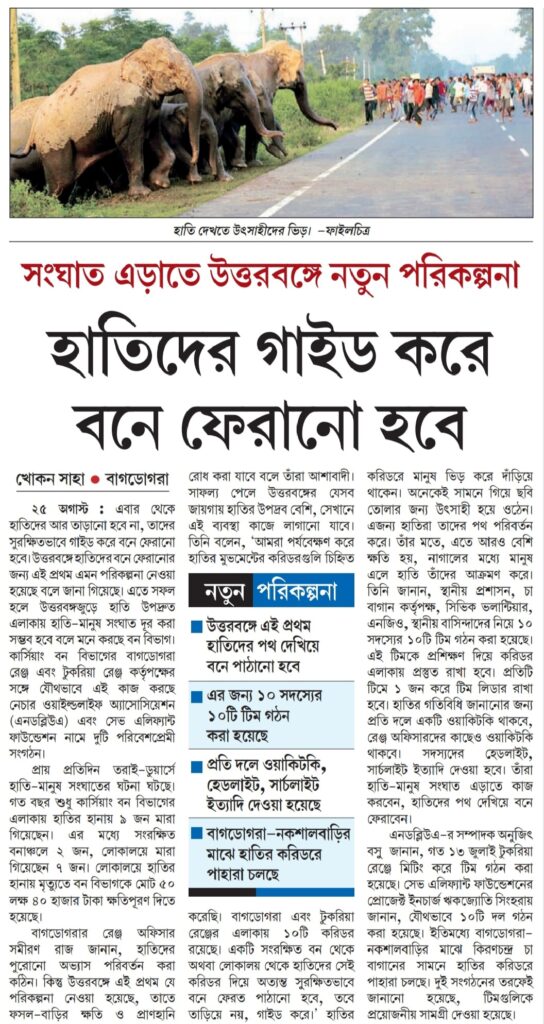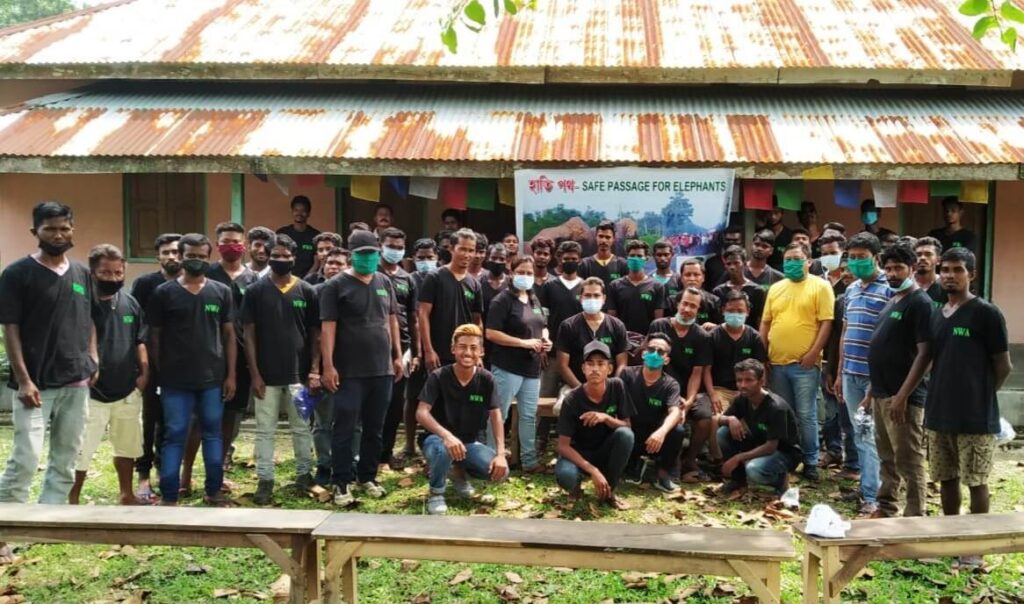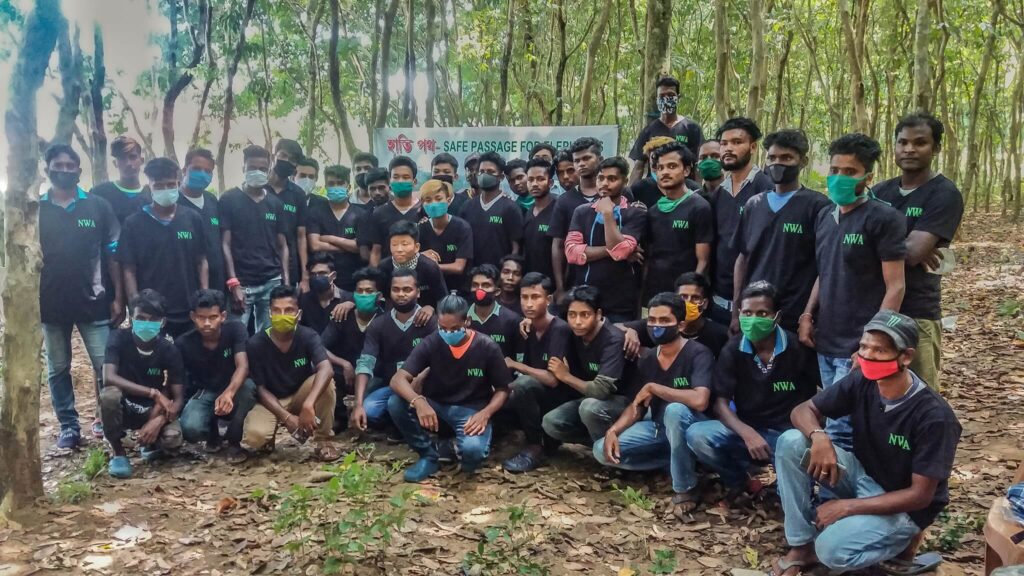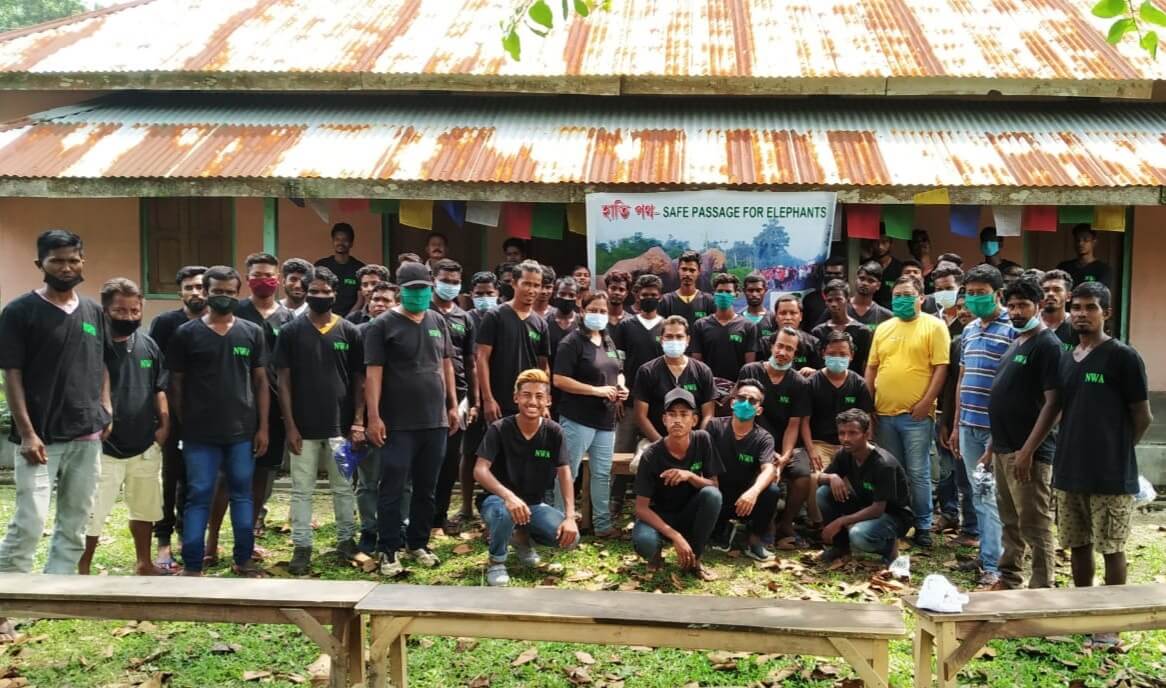For the first time in North Bengal, a meaningful initiative has been launched by the West Bengal Forest Department (Kurseong Division) to bring together villagers, forest officials, tea garden authorities, police, and NGOs to protect elephants and the communities living near forests. The project is being carried out in collaboration with Nature and Wildlife Association (NWA India).
We’ve named it “Haati Path – Safe Passage for Elephants.”

Why This Project Matters
As human settlements expand and elephant habitats shrink, conflict between people and elephants has become more frequent—especially during the paddy and maize seasons. Elephants often get stressed while crossing human-dominated areas, and onlookers unknowingly add to their anxiety. At the same time, villagers face crop loss, property damage, and even danger to life.
The project aims to:
- Help elephants move safely through their natural routes
- Reduce conflict and crop damage in surrounding villages
- Promote peaceful coexistence between humans and wildlife

Where It All Started
The idea took shape after a tripartite meeting on 13th July 2020 at Tukuriajhar Forest Rest House. The meeting brought together forest department officials, tea garden representatives, villagers, local panchayat leaders, and NWA India. It was a success and encouraged more NGOs to join the effort.
Steps We’ve Taken So Far
- Identified critical elephant corridors with the help of forest officials
- Formed ground-level monitoring teams made up of local youth, civic police, tea garden staff, and NGO representatives
- Distributed tools like searchlights and headlamps for night monitoring
- Planned to distribute walkie-talkies once permissions are in place
- Introduced and trained users on the mobile app HEC Alert, developed by NWA, to track elephant movement in real time
Training the Ground Teams
To prepare everyone involved, we began conducting hands-on training and distributing equipment in the most affected areas.


First Training – Bagdogra Range
Place: Kestopur Sobin Basti
Date: 29/08/2020
Inauguration: Mr. Samiran Raj, Range Officer
Teams Trained:
- Dumduma–Pahargumia
- Atal Factory Line
- Kestopur Sobin Basti
Second Training – Tukuriajhar Range
Place: UCC School Ground
Date: 30/08/2020
Inauguration: Mr. T. T. Bhutia, Range Officer
Teams Trained:
- Gedlajot–Raghujot
- Limbuvita–Modonjot–Raghuramchat
- Bijaynagar–Bora Line
- Panbari
Final Training – Tukuriajhar Range
Place: Tutbagan Forest Basti
Date: 02/09/2020
Teams Trained:
- Azmabad (4 No Section)
- Azmabad (17th & 23rd No)
- Chalchalia–Premnagar
- Darabokos
Teams were trained in using searchlights, the mobile app, and safety procedures. Since then, many have already begun reporting elephant activity and coordinating among themselves effectively.
What Lies Ahead
This project comes at a critical time. Elephant movement is increasing, and artificial barriers like the electric fencing along the Indo-Nepal border have blocked key natural corridors. These challenges make initiatives like Haati Path even more important.
We’re hopeful that by combining community participation, technology, and proper planning, we can reduce conflict and ensure a safer environment for both people and elephants.
Together, we believe Haati Path – Safe Passage for Elephants will set a positive example for wildlife conservation across the region. This is just the beginning, and with continued support, we can move closer to a future where humans and elephants live side by side, peacefully.



